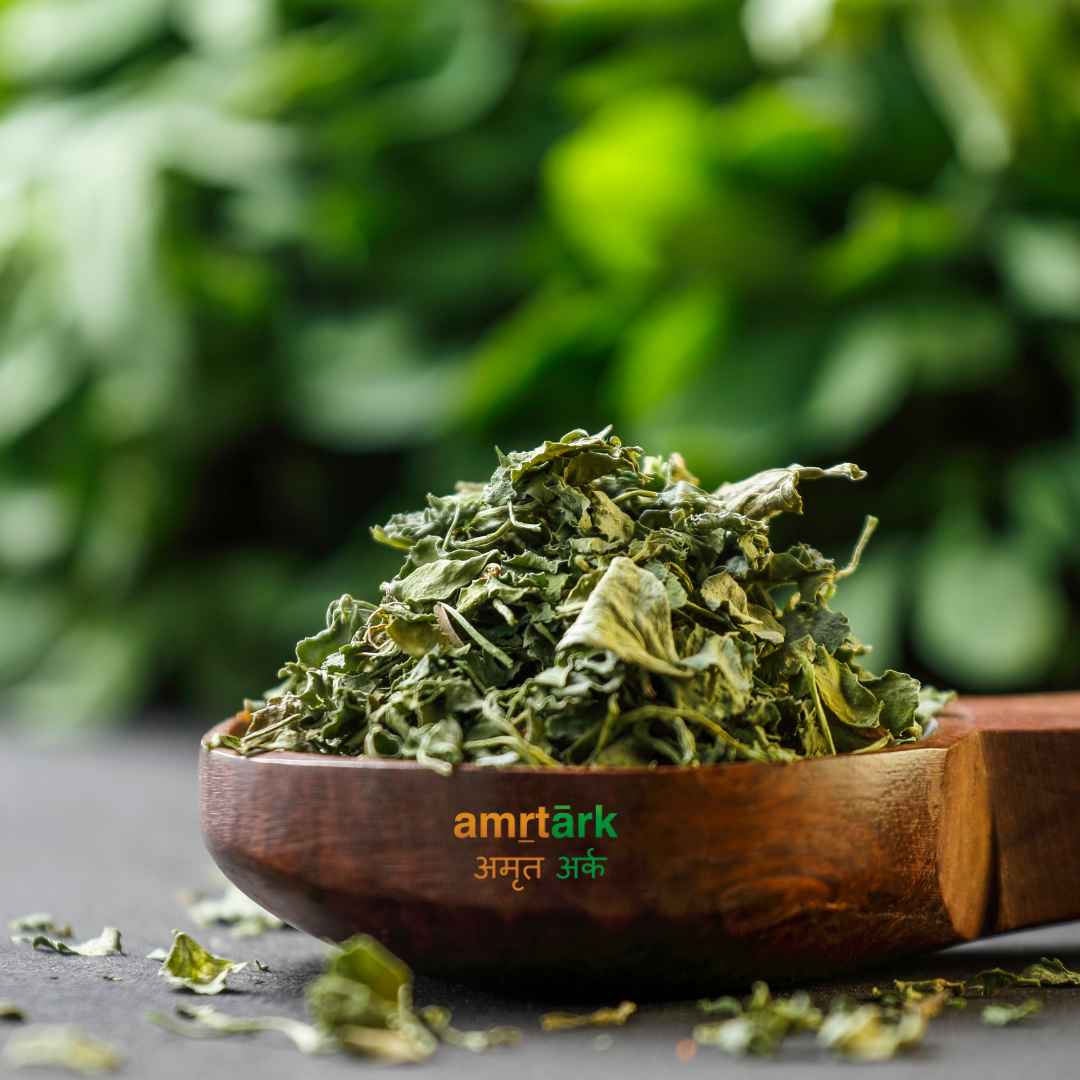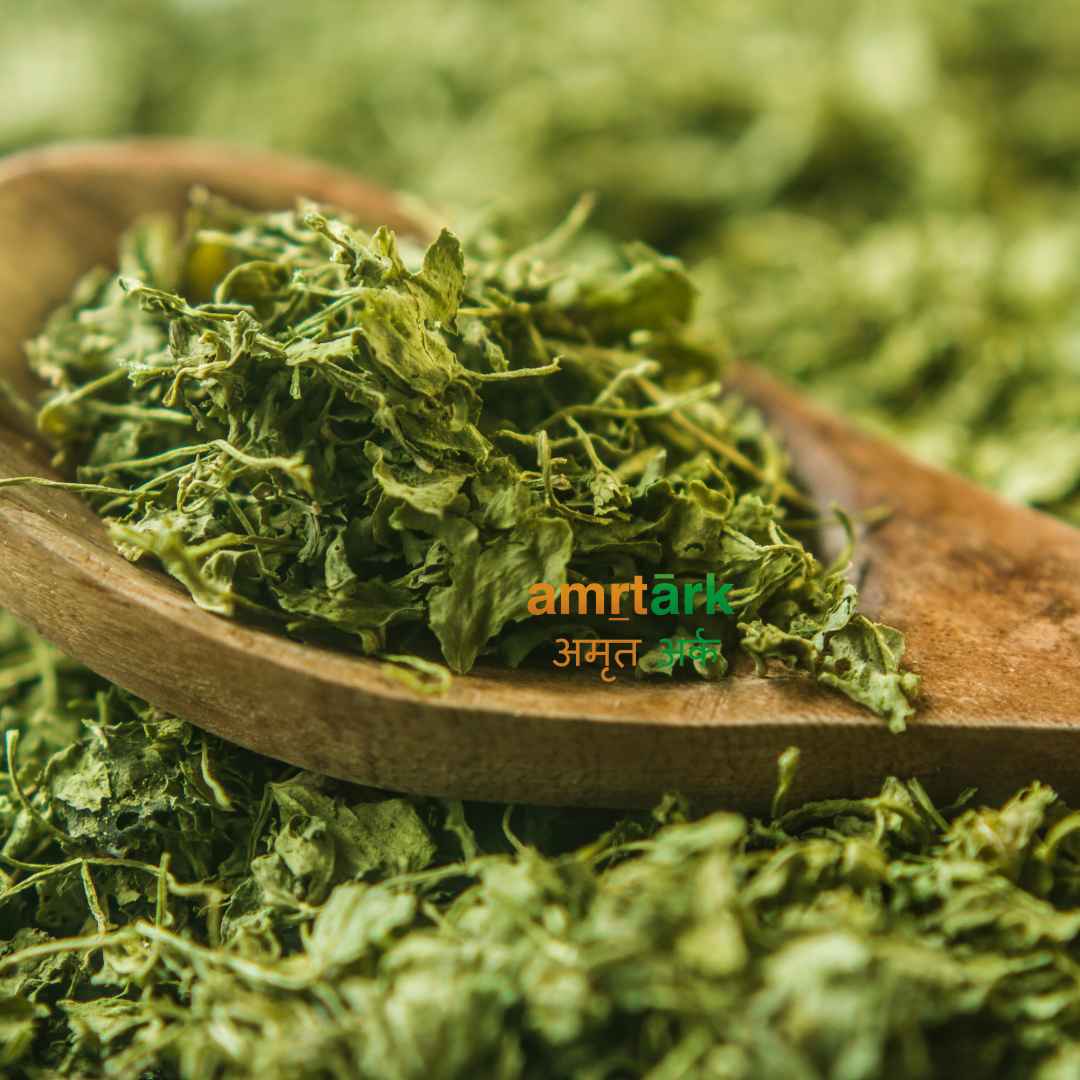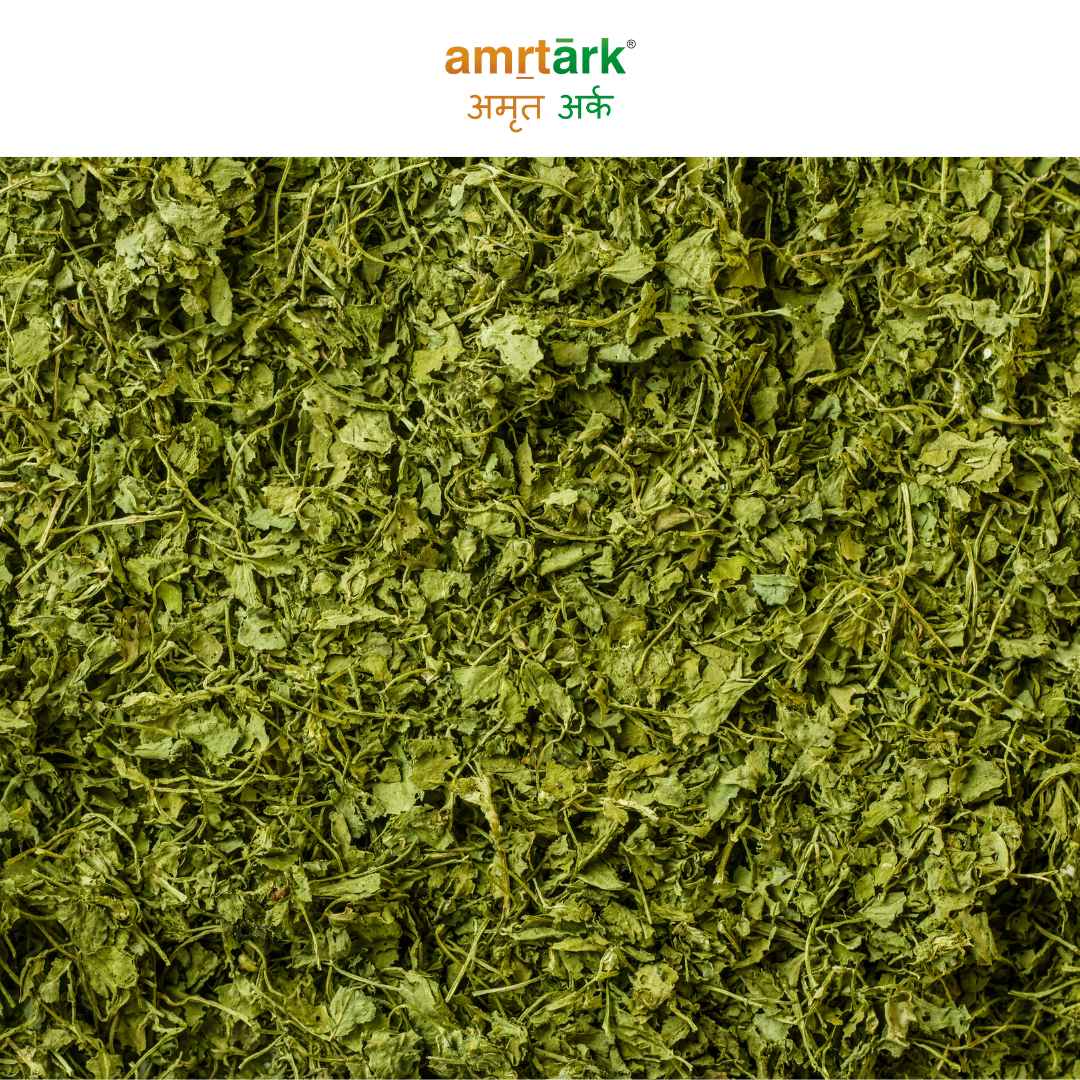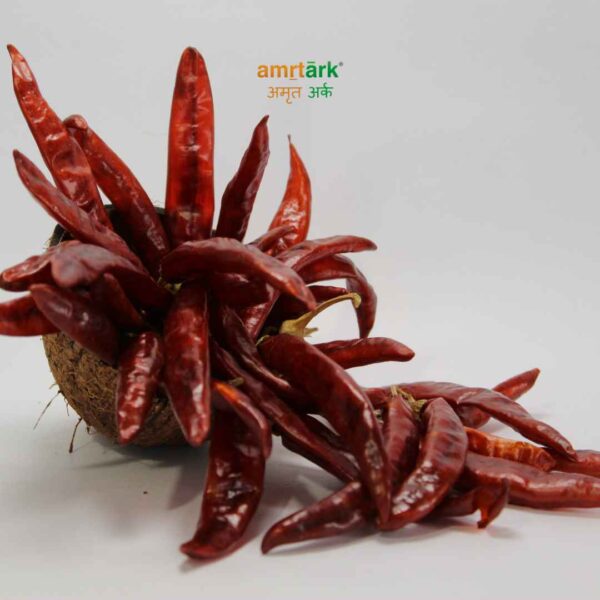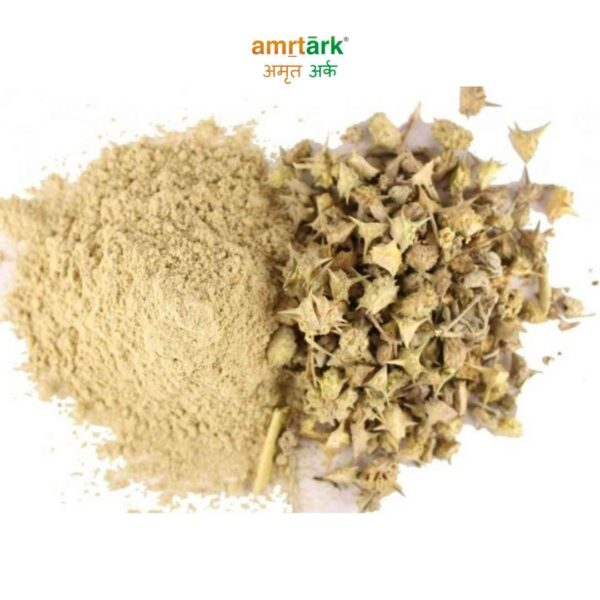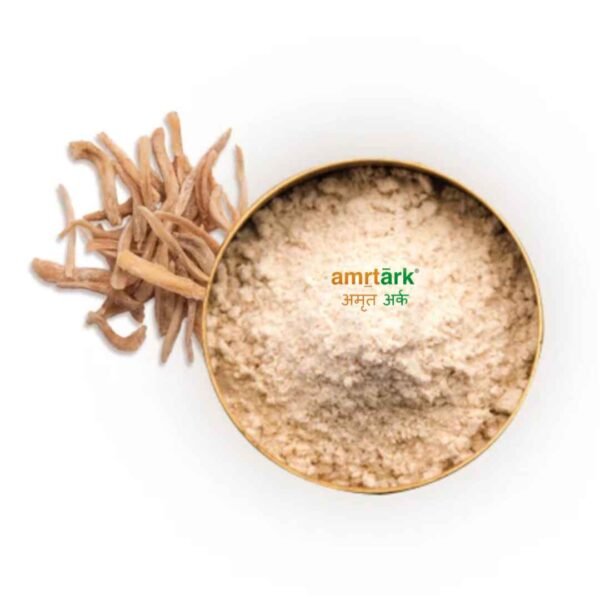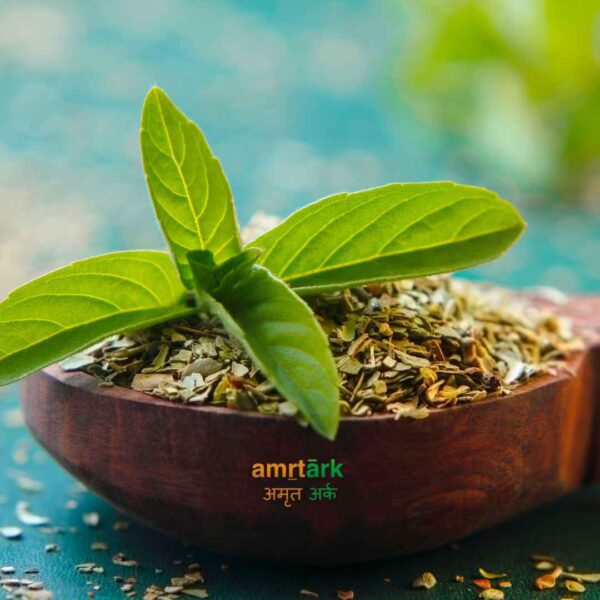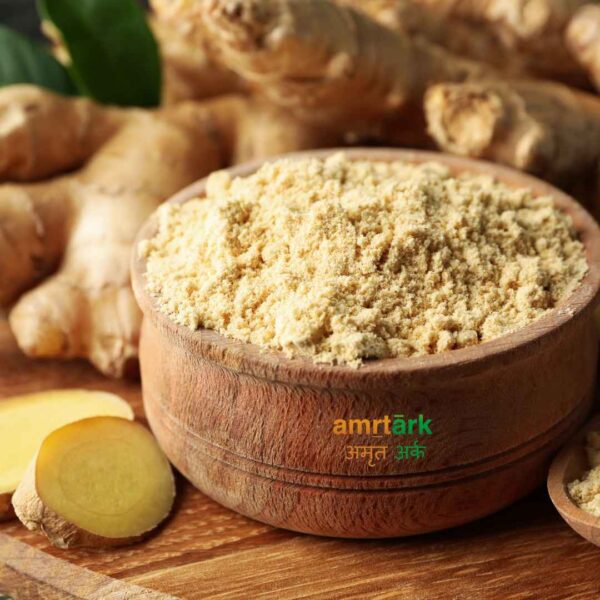Description
Kasuri Methi Leaves (Fenugreek Dry Leaves)
Kasuri Methi refers to dried fenugreek leaves, which are widely used in Indian cuisine for their unique, aromatic, and slightly bitter flavor. Derived from the Fenugreek plant (Trigonella foenum-graecum), Kasuri Methi holds a special place in traditional cooking as a flavor enhancer. Its distinct earthy and savory taste adds depth to a variety of dishes, especially curries, parathas, and gravies.
Botanical Characteristics
- Common Names: Kasuri Methi, Dried Fenugreek Leaves, Kasoori Methi, Fenugreek Dry Leaves
- Scientific Name: Trigonella foenum-graecum
- Family: Fabaceae
- Appearance: Kasuri Methi consists of dried fenugreek leaves that are greenish-brown in color and have a crumbled texture. They have a strong, slightly bitter aroma that is distinct from the seeds of the same plant.
Kasuri Methi comes from the fenugreek plant, which is a small leafy annual herb that grows in warm climates. The plant also produces seeds that are commonly used as a spice (methi seeds), but the dried leaves are more subtle and aromatic than the seeds, making them ideal for enhancing flavors in cooking.
Culinary Uses of Kasuri Methi
Kasuri Methi is widely used in Indian, Pakistani, and Middle Eastern cuisine. Its flavor is versatile, allowing it to be used in a variety of dishes. Here are some of its culinary uses:
- Flavoring Agent: Kasuri Methi adds a rich, earthy flavor to curries, gravies, lentil dishes, and meat preparations. Its slightly bitter taste balances out the richness of sauces, especially in creamy and tomato-based dishes.
- Garnishing: Dried fenugreek leaves are often sprinkled on top of dishes like naan, parathas, and dal to add a final touch of aroma and flavor. It pairs particularly well with Indian breads and rice dishes.
- Key Ingredient in Masalas: Kasuri Methi is an important ingredient in garam masala and other spice blends. It brings a herbal, grassy note to spice mixes used for marinating meats or flavoring vegetable dishes.
- Flavor Enhancer in Parathas and Rotis: Kasuri Methi is commonly kneaded into dough to make Methi Parathas or flavored rotis, lending a distinctive, savory taste to the bread. It is also added to batters for pancakes and fritters.
- Tandoori Dishes: In tandoori preparations, such as Chicken Tikka and Paneer Tikka, Kasuri Methi is often used to flavor the marinade, imparting a smoky, herbal flavor to the grilled or roasted dishes.
- Saag and Subzi (Vegetable Dishes): It complements leafy greens like spinach (saag) and is added to subzi preparations like Aloo Methi (potato-fenugreek stir fry), boosting the flavor profile of the dish.
Health Benefits of Kasuri Methi
In addition to its culinary uses, Kasuri Methi is rich in medicinal properties, similar to fenugreek seeds. Its health benefits include:
- Improves Digestion: Kasuri Methi contains fiber and antioxidants that aid digestion. It helps in relieving indigestion, flatulence, and bloating. The slight bitterness in fenugreek leaves stimulates the production of digestive enzymes, promoting better gut health.
- Helps Control Blood Sugar Levels: Just like fenugreek seeds, Kasuri Methi has been found to help regulate blood sugar levels. Its high fiber content slows down carbohydrate absorption, helping to control glucose levels in the bloodstream, making it beneficial for people with diabetes.
- Rich in Antioxidants: Kasuri Methi is rich in antioxidants like flavonoids and polyphenols, which help combat oxidative stress and protect the body from free radical damage. This can lower the risk of chronic diseases, including heart disease and cancer.
- Reduces Cholesterol Levels: The soluble fiber in Kasuri Methi can help lower cholesterol levels by reducing the absorption of cholesterol in the intestines. It may also help increase HDL (good cholesterol) levels and reduce LDL (bad cholesterol), supporting cardiovascular health.
- Anti-inflammatory Properties: The leaves of the fenugreek plant have natural anti-inflammatory effects, which can help reduce inflammation in the body. This may be beneficial in managing conditions like arthritis or inflammatory bowel diseases.
- Rich in Vitamins and Minerals: Kasuri Methi is a good source of vitamins A, C, and K, as well as iron, calcium, and potassium. These nutrients support overall health, including bone strength, immune function, and healthy skin.
- Promotes Heart Health: The combination of antioxidants, fiber, and anti-inflammatory compounds in Kasuri Methi supports cardiovascular health by reducing the risk of heart diseases like atherosclerosis, high blood pressure, and heart attack.
Traditional and Ayurvedic Uses
In Ayurveda, Kasuri Methi (and fenugreek in general) is considered to have numerous health-promoting properties:
- It is used to treat digestive issues, including indigestion, diarrhea, and constipation.
- The herb is also recommended to boost appetite and enhance the body’s ability to assimilate nutrients.
- Kasuri Methi is believed to balance the Vata and Kapha doshas, which makes it useful for improving digestion and metabolism while also reducing mucus and congestion.
- Fenugreek leaves are used in traditional remedies to manage joint pain and inflammation, particularly in conditions like arthritis.
Modern Uses and Forms
Kasuri Methi is available in several forms for both culinary and medicinal purposes:
- Dried Leaves: The most common form, dried fenugreek leaves are used as a spice or herb in cooking.
- Kasuri Methi Powder: Ground fenugreek leaves can be used as a seasoning or in spice blends.
- Capsules and Supplements: Fenugreek leaf extracts are available in capsule form for those seeking its health benefits in a concentrated supplement.
How to Use Kasuri Methi in Cooking
- To Rehydrate: Before adding to dishes, Kasuri Methi can be soaked in warm water for a few minutes to soften the leaves and bring out their full flavor.
- As a Garnish: Simply crush dried leaves between your palms and sprinkle them over finished dishes to release their aroma.
- In Marinades and Curries: Add a teaspoon or two of dried leaves directly to curries, soups, or sauces while they are cooking to infuse the dish with a rich, earthy taste.
Side Effects and Precautions
While Kasuri Methi is generally safe for most people when used in culinary amounts, there are a few precautions to keep in mind:
- Pregnant women should avoid large amounts of fenugreek leaves, as it can stimulate uterine contractions.
- Allergic reactions: Some people may experience an allergic reaction to fenugreek, including Kasuri Methi, which may cause symptoms such as itching, swelling, or difficulty breathing.
- Interaction with medication: Because fenugreek can lower blood sugar levels, individuals on diabetes medication should use Kasuri Methi with caution and consult a healthcare provider if necessary.

